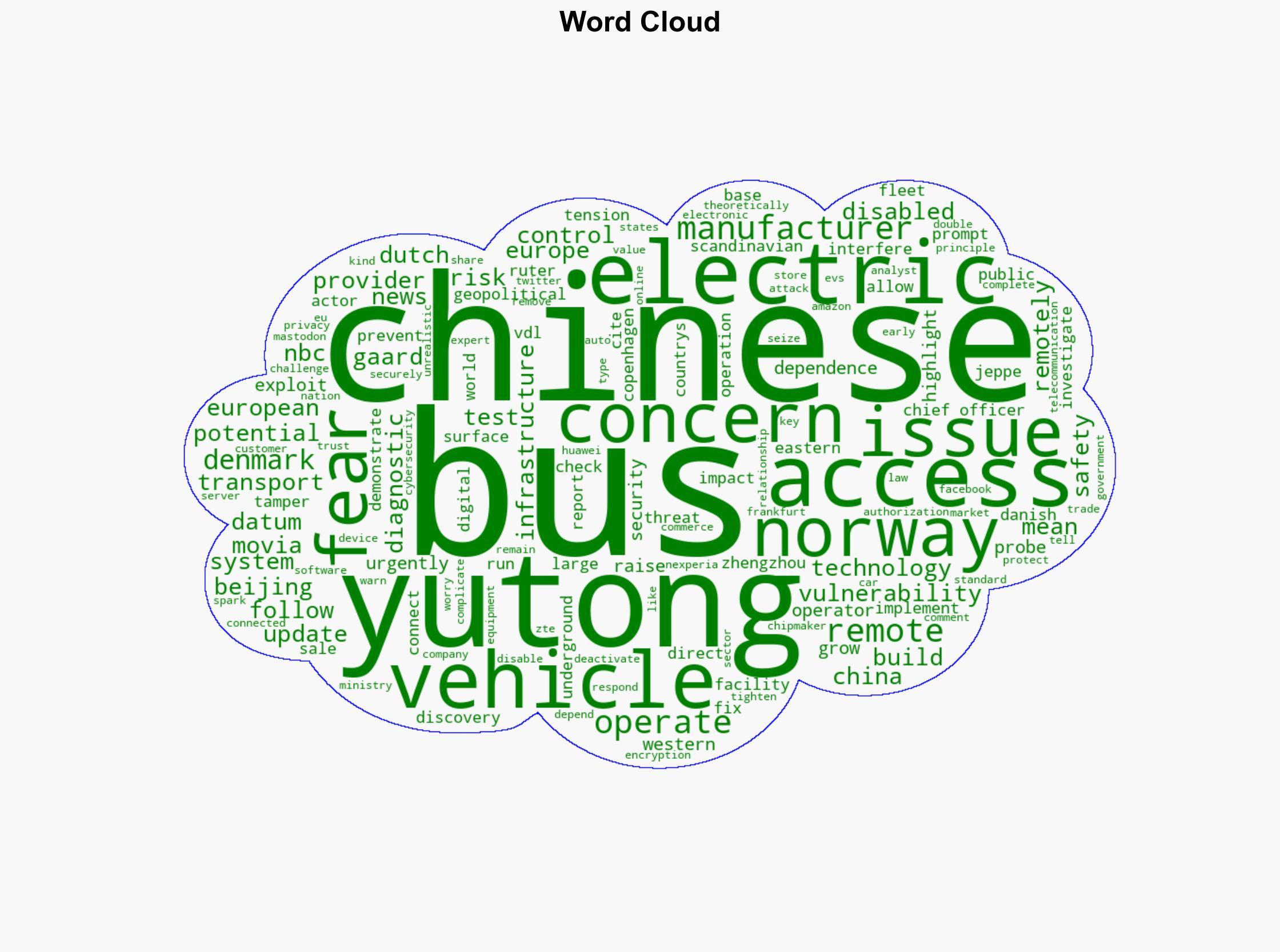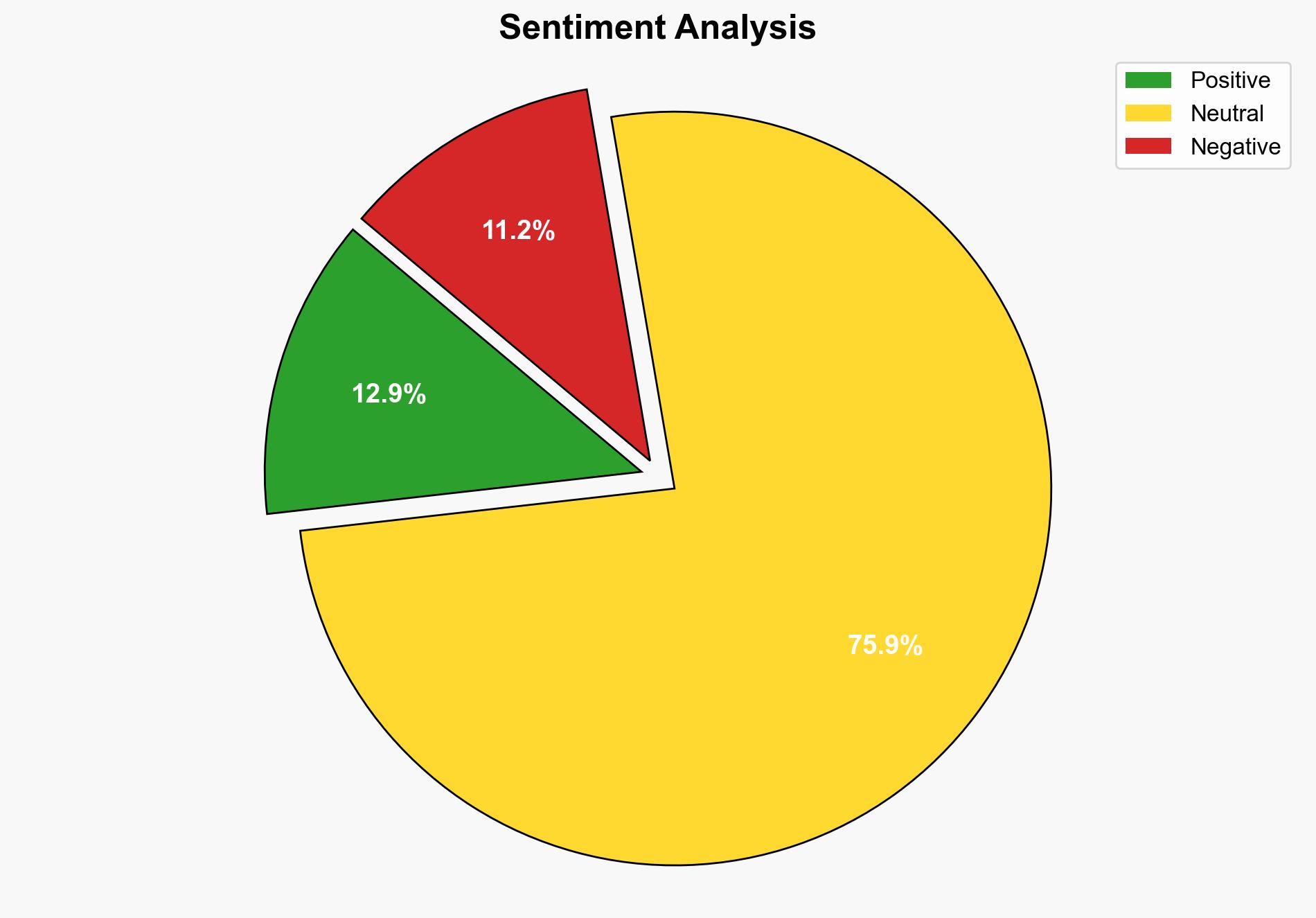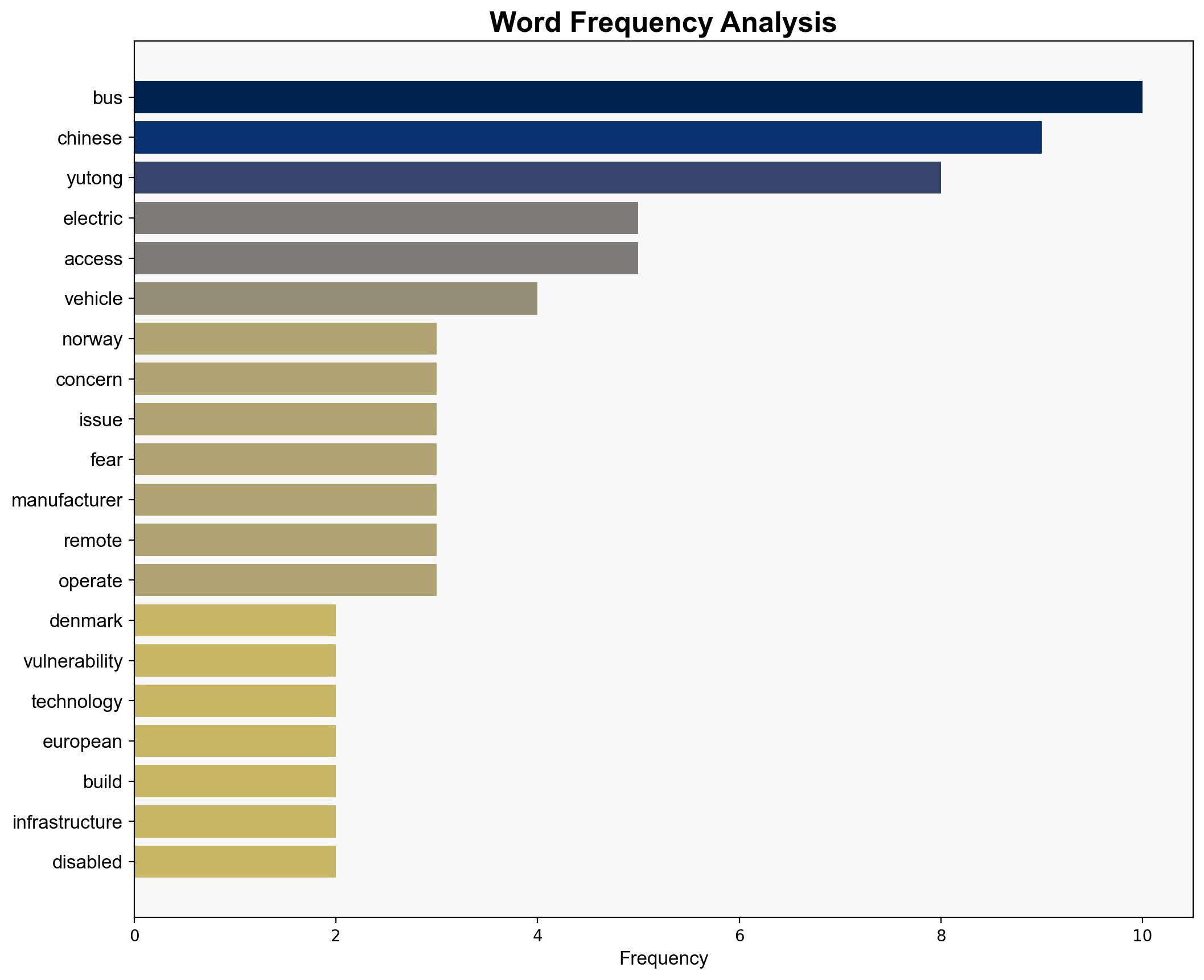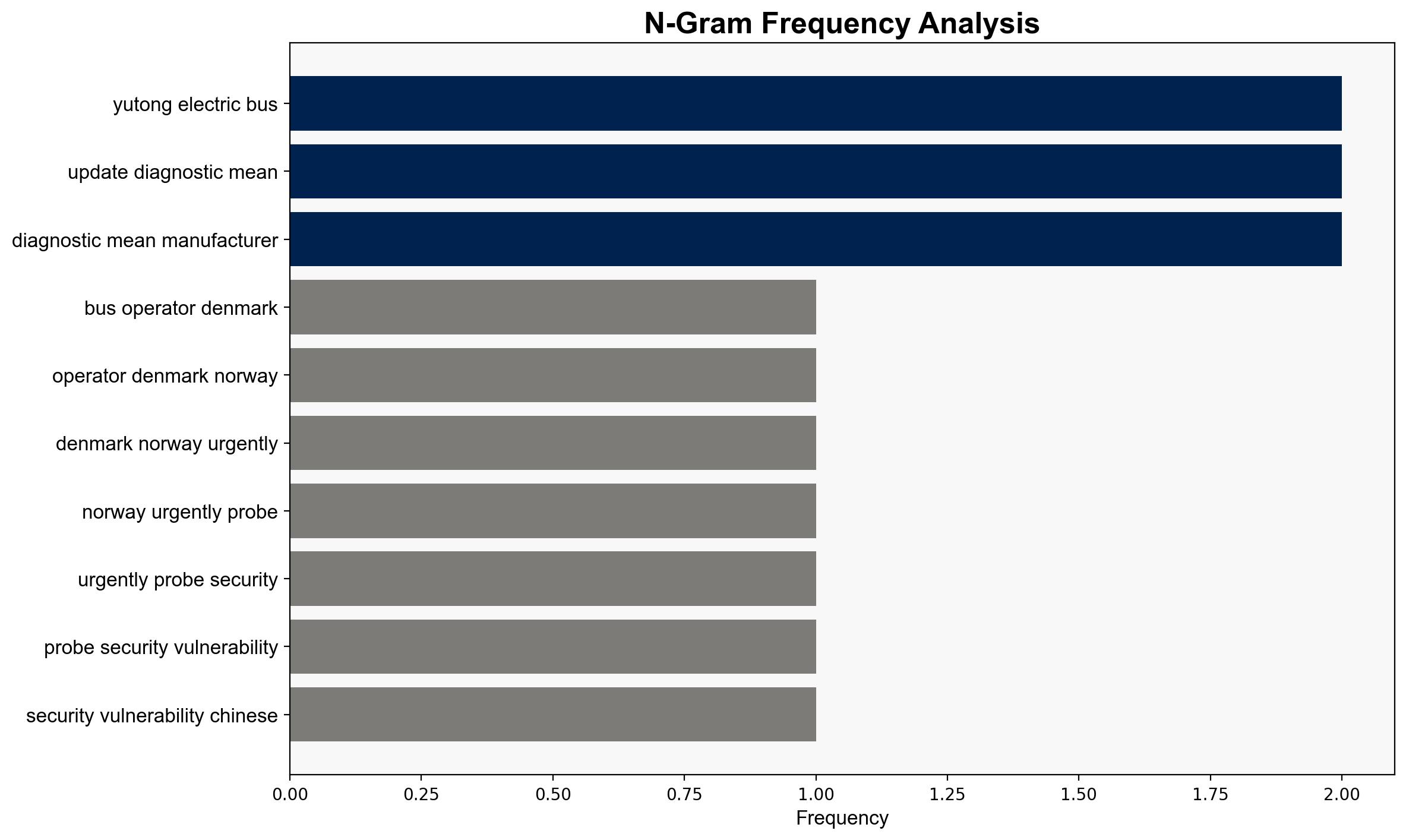Denmark and Norway investigate Yutong bus security flaw amid rising tech fears – Securityaffairs.com
Published on: 2025-11-10
Intelligence Report: Denmark and Norway investigate Yutong bus security flaw amid rising tech fears – Securityaffairs.com
1. BLUF (Bottom Line Up Front)
The investigation into Yutong bus security vulnerabilities by Denmark and Norway underscores growing concerns over the reliance on Chinese technology in critical infrastructure. The most supported hypothesis suggests that these vulnerabilities could be exploited for geopolitical leverage. Confidence level: Moderate. Recommended action: Enhance cybersecurity measures and diversify suppliers to mitigate risks.
2. Competing Hypotheses
1. **Hypothesis A**: The security flaws in Yutong buses are unintentional and stem from inadequate cybersecurity measures during the manufacturing process. This reflects a broader industry issue rather than a targeted geopolitical strategy.
2. **Hypothesis B**: The vulnerabilities are intentionally embedded by Chinese manufacturers to allow potential remote control and disruption, serving as a strategic tool for geopolitical influence.
Using the Analysis of Competing Hypotheses (ACH) 2.0, Hypothesis B is better supported due to the strategic pattern of similar incidents involving Chinese technology, such as the removal of Huawei and ZTE equipment from European infrastructure.
3. Key Assumptions and Red Flags
– **Assumptions**: Hypothesis A assumes that cybersecurity lapses are common across all manufacturers, not just Chinese. Hypothesis B assumes a deliberate strategy by Chinese entities to exploit these vulnerabilities.
– **Red Flags**: Lack of direct evidence linking the vulnerabilities to intentional actions by the Chinese government. Potential cognitive bias includes confirmation bias towards viewing Chinese technology as inherently risky.
– **Inconsistent Data**: The report does not provide specific instances of exploitation, leaving room for alternative explanations.
4. Implications and Strategic Risks
The potential for remote control of public transport systems poses significant risks, including economic disruption, public safety threats, and increased geopolitical tensions. If vulnerabilities are exploited, it could lead to a loss of public trust in technology and escalate cybersecurity measures across Europe. The broader implication is a possible shift towards decoupling from Chinese technology, affecting global trade dynamics.
5. Recommendations and Outlook
- Conduct comprehensive cybersecurity audits on all foreign-manufactured vehicles and infrastructure.
- Develop a strategic plan to diversify suppliers and reduce dependency on Chinese technology.
- Scenario Projections:
- Best: Successful mitigation of vulnerabilities with no exploitation, leading to strengthened cybersecurity frameworks.
- Worst: Exploitation of vulnerabilities causing significant disruption and geopolitical conflict.
- Most Likely: Increased scrutiny and regulatory measures on Chinese technology, with gradual supplier diversification.
6. Key Individuals and Entities
– Jeppe Gaard, Danish public transport provider Movia
– Yutong, Chinese bus manufacturer
– Ruter, Norwegian transport provider
7. Thematic Tags
national security threats, cybersecurity, counter-terrorism, regional focus





